Can the US Trust Moon Jae In?
For the last year the Trump Administration and its unwavering supporters have declared that we finally have peace on the Korean Peninsula. They pointed to the DPRK’s unilateral moratorium on ICBM and nuclear testing last year preceding the Singapore summit. They also pointed to President Moon’s statements that the North is not buying time, but is looking to build trust. These events ultimately culminated with the President of the United States referring to the despotic dictator of the DPRK as a “great leader.” However, the Hanoi summit and the subsequent rebuilding of the Sohae launch site have made it difficult for the Administration to maintain this optimistic view of the DPRK situation. Notably, the Moon Administration is blaming the US for holding on to the “pipedream” of an “all or nothing strategy” with respect to DPRK denuclearization. And that brings us back to how we arrived in this situation in the first place.
Who is Moon Jae In?
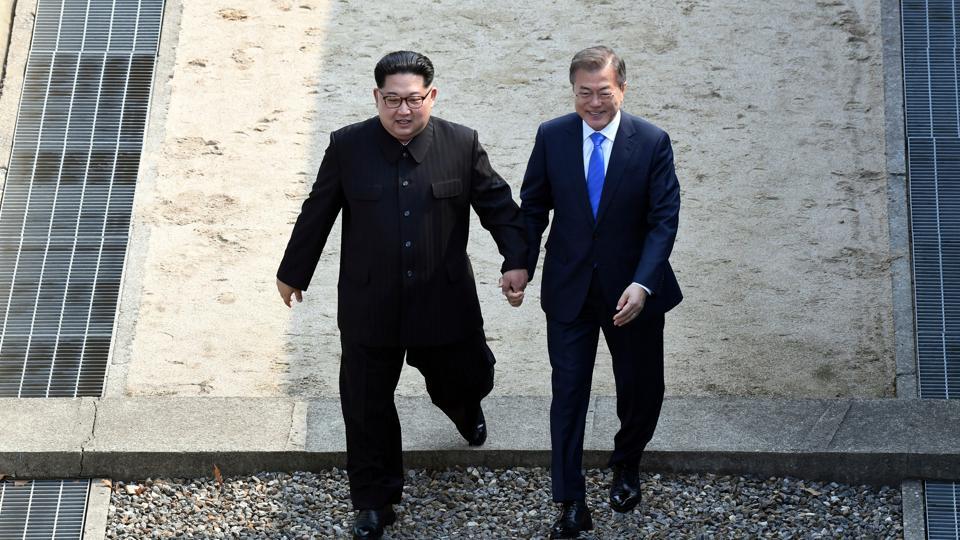
President Moon probably did not enter the collective minds of Americans until he emerged as the 12th president of the ROK. Many Americans know that the previous president, Park Geun Hye — daughter of the 3rd president, Park Chung Hee — was impeached and subsequently imprisoned, but they may not know of the Moon scandal immediately preceding President Park’s. Former Foreign Minister Song Min Soon revealed in his memoir that Moon, then chief of staff to President Roh Moo Hyun, consulted with the DPRK prior to the ROK abstaining from a UN resolution criticizing the North’s human rights abuses. Not only Americans, but many Koreans have forgotten this budding scandal as candlelight vigils invaded the news following the timely release of Choi Soon Shil’s tablet.
Understanding President Moon necessitates understanding the president he served, Roh Moo Hyun. Roh, like Moon, was a member of the 386 Generation (people in their 30s who went to university in the 80s and were born in the 60s) that spent the 80s engaged in student protests against the military juntas of Park Chung Hee and Chun Doo Hwan. This era of student activism influenced both men to become human rights lawyers and join the 민주사회를 위한 변호사모임 (Association of Lawyers for a Democratic Society). While this group claims to be “collaborating in joint activities to protect basic human rights” they were the same group adamantly supporting the DPRK’s claims that the Ningbo 12 (Pyongyang-ran restaurant workers who defected in 2016) were not defectors, but abducted against their will.
This is a strange and bold assertion. Under South Korean law, the lawyers are forbidden from speaking to any North Korean citizen — especially loyalists tight with the regime.
As best as I can tell, this law has been honored. No Minbyun lawyer has ever directly communicated with any of the parents. They’ve instead resorted to interpreting their wishes by studying North Korean propaganda dispatches.
Hello Shadowlands, by Patrick Winn
The Roh Administration
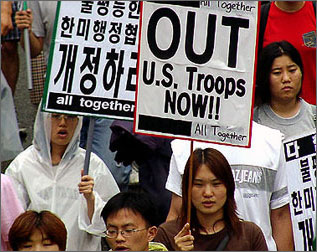
I spent two years stationed in the ROK at the end of the Roh Administration and beginning of the Lee Administration. I then returned to live in Korea as an Overseas Korean permanent resident during the Park Geun Hye Administration. The anti-American sentiment I witnessed in my youth under the Kim Dae Jung Administration continued into the Roh Moo Hyun Administration. Roh campaigned on anti-American rhetoric leading to physical attacks on US servicemembers and “No Americans Allowed” signs on Korean stores. Although Roh called for the removal of all US troops while campaigning, after taking office his administration swiftly demanded that US troops remain “until the nuclear problem is resolved.” While some have criticized President Trump’s remarks hinting at a desire for a limited military footprint on the Peninsula, we must remember that many in government today remember the rhetoric of President Moon’s mentor.
In addition to the anti-American rhetoric of his predecessor, Roh continued the “Sunshine Policy” regarding the DPRK. Former US Defense Secretary, Robert Gates, revealed in his memoir that Roh declared the US and Japan to be the greatest security threats to the ROK. This worldview, common among the leftist Minbyun group members, was developed in the 80s when the South Korean nationalist left looked north of the 38th parallel for camaraderie. Thus, Roh engaged with the North Koreans and even traveled to Pyongyang to meet with Kim Jong Il in 2007.
Roh’s anti-American inclinations led to a fracturing within the Blue House during his administration between the Jusapa (self-reliance faction) and the Dongmaengpa (alliance faction). The Jusapa was centered around Lee Jong Seok (originally Deputy National Security Adviser and then Unification Minister in 2006) while the Dongmaengpa centered around members of the Foreign Ministry. Mike Chinoy (former CNN Senior Asia Correspondent) published an excellent book (Meltdown) in 2008 recounting interviews with US and ROK officials from the Clinton/Kim Dae Jung era through the Bush/Roh era. In the book, Chinoy describes how Foreign Miniser Yoon Young Kwan told Secretary of State Colin Powell that the US should offer the DPRK economic aid and security guarantees in exchange for reductions in conventional and nuclear weapons. Further, Yoon told Powell that ROK troops for the Iraq effort were contingent on US flexibility in dealing with the DPRK. After Roh, the ROKUS alliance recovered under the successive conservative administrations of Lee and Park, but Moon’s administration has managed to lead the Trump Administration into a series of bad decisions.
Current State of the ROK
As mentioned previously, Moon’s election is underscored by the surprisingly fast ouster of Park Geun Hye — especially in light of the extreme lack of evidence against her. Previously, Roh Moo Hyun was also impeached for illegal electioneering leading to his party occupying the National Assembly and engaging in hand to hand combat with the conservatives on the assembly floor. The Constitutional Court overturned the Roh impeachment while upholding the Park impeachment, following the public sentiment in the respective cases. Upon winning the election, Moon demonstrated that the Jusapa of Roh’s Administration were firmly in control of the ROK.
Moon Chung In, Special adviser on unification, foreign affairs, and national security, was also an adviser to both Kim Dae Jung and Roh Moo Hyun. Moon was a key developer of the Sunshine Policy and attended both of the previous presidents’ inter-Korean summits. Moon has been a very vocal critic of the ROKUS alliance and stated that stationing US troops on the peninsula cannot be justified once a peace accord is signed. President Moon also selected Im Jong Seok, imprisoned for organizing a visit to the DPRK in 1987 and suspected of action against US assets in the ROK, as his chief of staff. Moreover, President Moon surrounded himself with other Jusapa officials as Foreign Minister, Defense Minister, Unification Minister, and Director of the National Intelligence Service. Most recently, President Moon has nominated Kim Yeon Chol — a critic of THAAD and DPRK sanctions — as Unification Minister.
President Moon has ignored domestic concerns in favor of reconciliation with the DPRK which initially brought him overwhelming approval ratings. However, the prolonged economic stagnation, targeting of journalists and spying on citizens/politicians has resulted in the lowest approval ratings since President Moon assumed office. Also, despite a record three inter-Korean summits under President Moon, the two sides have fulfilled nearly none of the agreements that resulted from the summits. The South has moved forward with dismantling guardposts, disarming troops, and establishing no-fly zones at the border, while the North has rebuilt the Sohae Launch site and expanded ICBM bases located near the border with the PRC.
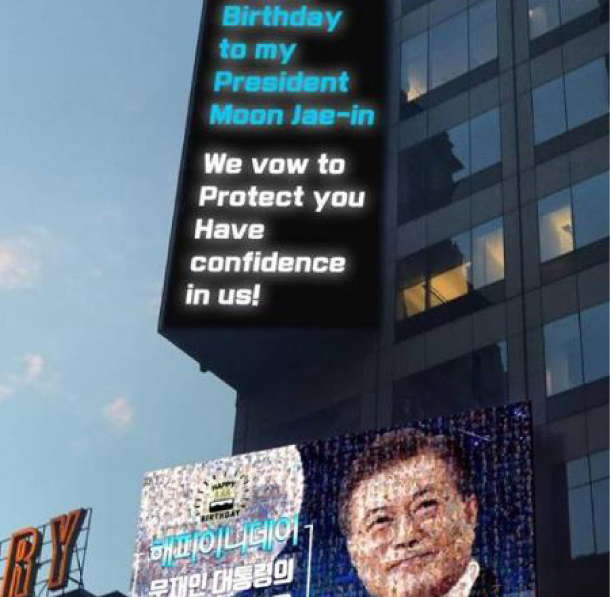
Conclusion
The answer to the question posed in the title of this article is undoubtedly “no.” Hell no.
Moon Jae In has moderated his rhetoric compared to his leftist predecessors, but his cabinet appointments have been telling. The Jusapa faction and Moon’s Minbyun association are heavily influenced by pro-North sympathies. In fact, the propaganda shown on Seoul billboards and the attacks against journalists are eerily similar to the North’s rhetoric demanding unquestioned loyalty to the Great Leader and appealing to ethno nationalist sentiment. In light of this, the US should remain cautious of the Moon Administration and their attempts to coerce the United States into dangerous peace accords. As stated by President Moon’s top adviser, with a peace accord in place, there is no reason for US troops to be stationed on Peninsula. Without the US security umbrella and with a pro-North administration in the south, the DPRK may accomplish its goal of reunification without the need for military conflict.
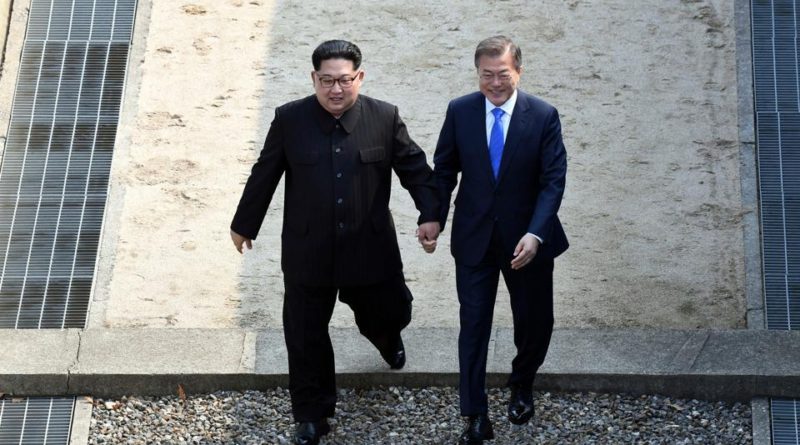
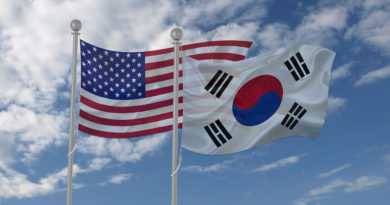
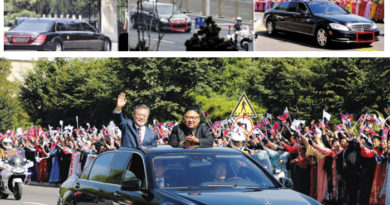
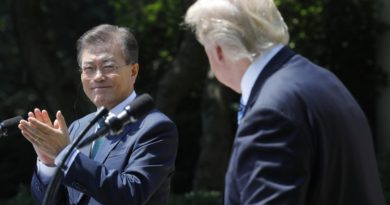
Pingback:President Trump's Incoherent North Korea Policy - SAMJOKO
Pingback:Bernie Sanders' DPRK Policy - SAMJOKO
Pingback:Upcoming Trump-Moon Summit - SAMJOKO
Pingback:President Moon at a Crossroad - SAMJOKO